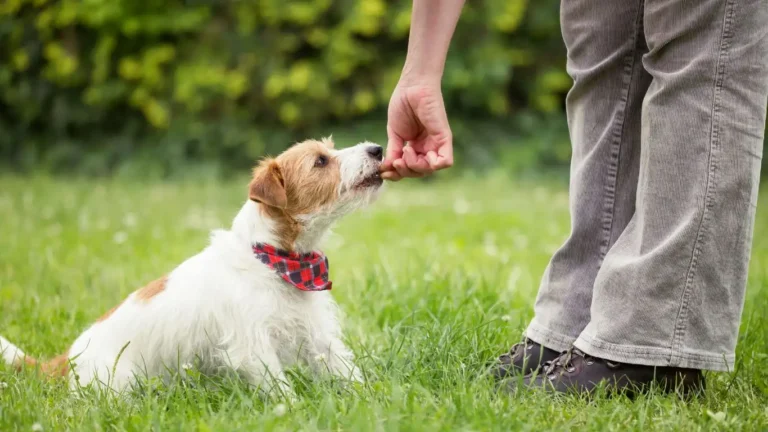Can Dogs Eat Brussels Sprouts? Health Benefits and Risks Explained
As an Animal Care Specialist with years of experience working in pet clinics and shelters, I’ve seen countless questions from pet owners about what food is safe for dogs. One question that comes up more often than you’d think is: Can dogs eat Brussels sprouts? It’s a great question and one that requires a little more explanation than a simple yes or no. After all, when it comes to our furry friends, we always want to make sure they’re eating food that benefits their health, not harms it. So, let’s dive into this and explore everything you need to know about feeding Brussels sprouts to your dog.
What Are Brussels Sprouts?
Brussels sprouts are small, leafy vegetables that belong to the cruciferous family, which also includes broccoli, cauliflower, and cabbage. These veggies are packed with nutrients that are beneficial to humans, such as vitamins C and K, fiber, and antioxidants. But what about dogs? Are these nutrients helpful to them as well? The short answer is that while Brussels sprouts can offer some nutritional benefits to dogs, it’s not all sunshine and rainbows when it comes to their digestive system.

Can Dogs Eat Brussels Sprouts Safely?
Yes, dogs can eat Brussels sprouts in moderation, but it’s important to understand the potential effects on their digestive system. Brussels sprouts are high in fiber, and while fiber can be a good thing for your dog’s diet, too much of it can lead to gastrointestinal upset. The high fiber content can cause bloating, gas, and diarrhea in some dogs, especially if they aren’t used to eating vegetables.
I’ve seen a few cases where pet owners introduced Brussels sprouts to their dogs’ diets too quickly, and the results weren’t pretty. So, if you’re thinking of giving your dog a taste of Brussels sprouts, remember to do it in small, manageable amounts, and always observe how your dog reacts afterward.
Health Benefits of Brussels Sprouts for Dogs
When it comes to the potential health benefits, Brussels sprouts aren’t a bad choice for dogs—when fed appropriately. Here are some of the key benefits you can expect:
- High in Vitamins: Brussels sprouts contain vitamin K, which plays an essential role in blood clotting and bone health. They also offer vitamin C, an antioxidant that supports your dog’s immune system.
- Rich in Fiber: While too much fiber can be problematic, in small amounts, it can help keep your dog’s digestive system running smoothly. This can be especially beneficial for dogs who suffer from constipation.
- Packed with Antioxidants: The antioxidants found in Brussels sprouts, like sulforaphane, can help reduce inflammation and fight oxidative stress, supporting overall health.
- Supports Heart Health: Brussels sprouts contain omega-3 fatty acids, which can contribute to better heart health by helping to lower cholesterol and reduce inflammation.

Potential Risks of Feeding Brussels Sprouts to Dogs
While Brussels sprouts offer some health benefits, there are a few potential risks that pet owners need to be aware of. Let’s look at them in more detail:
Gastrointestinal Issues
As mentioned earlier, the most common side effect of Brussels sprouts in dogs is gastrointestinal upset. Because they are so high in fiber, they can cause gas, bloating, and diarrhea if your dog eats too many. Some dogs, especially those with sensitive stomachs, may be more prone to these issues.
Thyroid Function
Brussels sprouts, like other cruciferous vegetables, contain compounds called goitrogens, which can interfere with thyroid function if consumed in large amounts. The goitrogens can interfere with iodine absorption, which may impact the production of thyroid hormones. While it would take an excessive amount of Brussels sprouts to affect your dog’s thyroid health, it’s still something to keep in mind when adding them to their diet.
Obesity Risk
While Brussels sprouts are low in calories, it’s still important to keep in mind that too many treats, no matter how healthy, can lead to obesity. A dog’s main source of nutrition should always come from a high-quality dog food, and vegetables like Brussels sprouts should be offered as a supplement or occasional treat.

How to Safely Introduce Brussels Sprouts to Your Dog’s Diet
If you’re considering adding Brussels sprouts to your dog’s diet, here are some tips to ensure that you’re doing so safely:
- Start Small: Introduce Brussels sprouts slowly and in small amounts. Start with one or two small sprouts and monitor your dog for any signs of digestive discomfort.
- Cook Them First: Never feed your dog raw Brussels sprouts. Cooking them will make them easier to digest and reduce the risk of gastrointestinal upset. You can steam or boil them, but avoid using any seasonings or oils, as these can be harmful to dogs.
- Cut Them Into Small Pieces: Always cut Brussels sprouts into small, bite-sized pieces to prevent choking, especially if you have a smaller breed dog.
- Watch for Reactions: After giving Brussels sprouts to your dog, keep an eye on their behavior and digestive health. If they seem to have an adverse reaction, it’s best to stop feeding them Brussels sprouts and consult your veterinarian.
Other Vegetables That Are Safe for Dogs
If your dog enjoys Brussels sprouts, you may be interested in introducing other vegetables into their diet. But before you do, it’s important to know which vegetables are safe and beneficial for dogs. As an Animal Care Specialist, I’ve always encouraged pet owners to offer a variety of vegetables to their dogs, as these can provide many health benefits when fed in moderation. Here are some other veggies that are generally safe for dogs:
- Carrots: Carrots are a dog’s best friend! Not only are they a great low-calorie snack, but they also provide a healthy dose of vitamin A. Most dogs love the crunch, and they’re great for dental health as well.
- Sweet Potatoes: Packed with fiber, vitamins, and minerals, sweet potatoes are an excellent source of nutrition for dogs. They can help with digestion and even provide a good source of beta-carotene, which supports the immune system.
- Cucumbers: If your dog needs a refreshing treat, cucumbers are perfect. They are low in calories, making them an ideal choice for dogs that are trying to manage their weight.
- Green Beans: These are full of fiber and low in calories, which makes them a great snack for dogs. Just make sure they’re cooked or steamed to make them easier to digest.
- Spinach: While high in iron and calcium, spinach should only be fed in small amounts due to its high oxalate content, which could interfere with calcium absorption.

How Much Brussels Sprouts Should You Feed Your Dog?
Now that you know the health benefits and potential risks of Brussels sprouts, let’s talk about portion control. It’s important not to overdo it when feeding Brussels sprouts to your dog. As with any new treat or food, moderation is key.
When I worked in shelters, I always had to remind pet owners that treats and veggies like Brussels sprouts should never replace your dog’s main diet, which should consist of high-quality dog food. Instead, Brussels sprouts should be an occasional supplement to their regular meals or a special snack once in a while.
Serving Size Recommendations
In my experience, most dogs can tolerate a small amount of Brussels sprouts without issue. Depending on your dog’s size and breed, you can start by giving them a couple of small Brussels sprouts once or twice a week. For small dogs, this might mean only one sprout, while larger dogs could safely handle a bit more. It’s always best to start small and see how your dog reacts to this new treat. If they show any signs of discomfort, cut back on the amount or discontinue feeding them Brussels sprouts altogether.
Remember, the key is moderation. Too many Brussels sprouts can cause gastrointestinal distress, so keeping it to a small serving is essential. Always consult with your vet if you’re unsure about the right amount to feed your dog.
Signs Your Dog May Be Having a Bad Reaction to Brussels Sprouts
Although Brussels sprouts are generally safe for dogs in small amounts, some dogs may have an adverse reaction to them. If your dog experiences any of the following symptoms, it could be a sign that Brussels sprouts are not a good fit for them:
- Excessive Gas: Brussels sprouts are notorious for causing gas in both humans and dogs. If your dog seems especially gassy or uncomfortable after eating Brussels sprouts, it might be best to stop feeding them this veggie.
- Bloating: A bloated belly could be a sign of digestive distress. If your dog’s stomach appears distended or they seem uncomfortable after eating Brussels sprouts, it’s time to cut back on the treats.
- Diarrhea: Another common side effect of too much fiber is diarrhea. If your dog develops loose stools after eating Brussels sprouts, it could be a sign that their digestive system is having trouble processing the fiber.
- Vomiting: In more severe cases, some dogs might vomit after eating Brussels sprouts, especially if they have sensitive stomachs or eat too many at once.

What to Do If Your Dog Experiences a Reaction
If your dog experiences any negative reactions to Brussels sprouts, the first thing you should do is remove the vegetable from their diet. For mild symptoms like bloating or gas, giving your dog plenty of fresh water and allowing them to rest may be enough to alleviate their discomfort.
However, if your dog has a more severe reaction, such as vomiting or diarrhea, it’s important to contact your veterinarian right away. They can help determine whether your dog is suffering from a food intolerance or if there’s something else going on with their digestive system.
In my experience, it’s always a good idea to keep a close eye on your dog after introducing any new food into their diet. If you’re ever uncertain about whether a certain food is right for your dog, don’t hesitate to reach out to a vet. They can provide expert advice and help ensure that your dog’s diet is safe and balanced.

How to Make Brussels Sprouts Fun and Safe for Your Dog
As much as Brussels sprouts are a nutritious vegetable, let’s face it—some dogs may not be thrilled about the idea of eating them! In my experience as an Animal Care Specialist, I’ve seen countless dogs who need a little creative encouragement when it comes to eating their veggies. Luckily, there are plenty of ways to make Brussels sprouts more appealing while keeping it safe.
Mixing with Other Dog-Friendly Foods
If your dog is a picky eater, you can try mixing Brussels sprouts with other dog-friendly foods they love. For example, you can pair Brussels sprouts with plain, cooked chicken, lean beef, or sweet potatoes. This not only helps mask the vegetable’s taste but also makes the meal more enticing. A few chopped-up Brussels sprouts mixed into a bowl of their favorite food can make a delicious and healthy combination!
Use Them as a Training Treat
Sometimes, Brussels sprouts can be turned into an excellent training tool. Their crunchy texture makes them an appealing, low-calorie option for rewarding your dog during training sessions. I’ve found that many dogs enjoy the texture and small size of Brussels sprouts, so they’re easy to offer as part of positive reinforcement during training. Just remember, use them in moderation—too many can cause digestive issues!
Freeze for a Cool Treat
Brussels sprouts can also be served as a cool treat during warmer weather. Try freezing small Brussels sprouts to create a crunchy, chilled snack that your dog will love. This is a fun way to keep your dog entertained, especially during the summer months, and it offers a refreshing alternative to the usual treats.

When to Avoid Feeding Brussels Sprouts to Your Dog
As much as Brussels sprouts can be a nutritious and safe treat for many dogs, there are certain situations where it’s best to avoid them altogether. Here are some circumstances when you should definitely skip feeding Brussels sprouts to your dog:
- If Your Dog Has a Sensitive Stomach: Some dogs have more sensitive digestive systems than others, and Brussels sprouts’ high fiber content might upset their stomach. If your dog tends to get an upset stomach or has a history of gastrointestinal issues, it’s best to avoid Brussels sprouts.
- If Your Dog Is Allergic to Cruciferous Vegetables: While rare, some dogs may have an allergy to cruciferous vegetables like Brussels sprouts, broccoli, or cabbage. If your dog shows any signs of food allergies, such as itching, vomiting, or diarrhea, after eating Brussels sprouts, remove them from their diet immediately and consult with a vet.
- If Your Dog Is Obese: If your dog is overweight or has been diagnosed with obesity, it’s important to monitor their overall caloric intake carefully. Even though Brussels sprouts are low in calories, feeding them too many treats, including veggies, can contribute to weight gain.
- If Your Dog Has a Thyroid Condition: Dogs with thyroid problems should be cautious when eating cruciferous vegetables, including Brussels sprouts, due to the goitrogens that can interfere with thyroid function. If your dog has thyroid issues, consult your veterinarian before introducing Brussels sprouts to their diet.
Consulting a Veterinarian About Your Dog’s Diet
Whenever you’re introducing new foods into your dog’s diet, it’s always a good idea to consult with your veterinarian. Every dog is unique, and their dietary needs can vary depending on their breed, age, weight, and overall health. Veterinarians can provide personalized advice on what foods are best for your dog, including whether Brussels sprouts should be part of their regular diet.
From my personal experience working in shelters and clinics, I’ve found that the advice of a professional is crucial when making dietary changes for pets. A vet can help you understand whether Brussels sprouts, or any other vegetable, is suitable for your dog’s specific health conditions. They can also guide you on proper portion sizes and any potential risks you may not be aware of.
References
If you want to read more about dog nutrition and whether certain vegetables are safe for your pet, there are some great resources available. I recommend checking out the following reliable sources:
- American Kennel Club (AKC) – For expert advice on dog health and nutrition.
- PetMD – A trusted source for pet health information.
- National Institutes of Health (NIH) – For general health and dietary information that could be beneficial for your dog.
- Health.com – Provides reliable health advice, including insights into pet care and diet.

Disclaimer
While Brussels sprouts are generally safe for most dogs when fed in moderation, this article is not intended to serve as veterinary advice. Every dog is different, and what works for one may not work for another. Always consult your veterinarian before introducing any new food or treat to your dog’s diet, especially if your dog has pre-existing health conditions or dietary restrictions.






